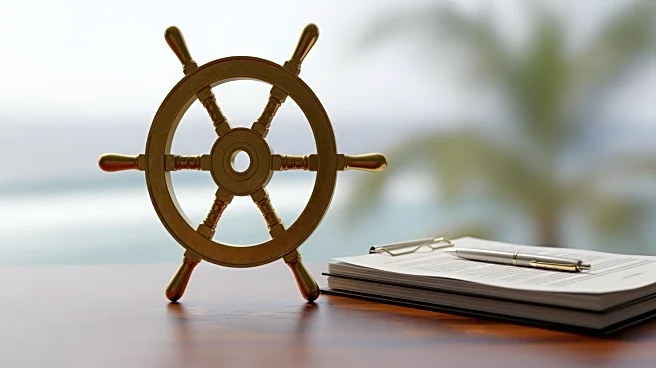What's Happening?
The Department of Justice (DOJ) has filed a motion to intervene in a lawsuit by the cruise industry against Hawaii's new 'Green Fee' law. The law imposes additional fees on tourists in hotels and cruise ships to fund climate action projects. The DOJ argues
that the fees violate the U.S. Constitution's Tonnage Clause, which requires Congressional approval for tonnage fees. The Cruise Lines International Association (CLIA) claims the fees discriminate against the cruise industry and are not for services provided to ships and passengers. Hawaii defends the law as a necessary measure for environmental stewardship.
Why It's Important?
The DOJ's intervention underscores the tension between federal and state authority in environmental policy. The case highlights the challenges states face in implementing climate action measures that may conflict with federal commerce regulations. The outcome could set a precedent for how states can fund environmental initiatives without infringing on federal law. The cruise industry, a significant economic player, argues that the fees could impact tourism and business operations, raising concerns about economic implications and the balance between environmental goals and industry interests.
What's Next?
The legal battle is likely to continue, with Hawaii defending its law and the DOJ advocating for federal primacy. The case may prompt discussions on the scope of state authority in environmental regulation and the role of federal oversight. Stakeholders, including environmental groups and industry representatives, will closely monitor the proceedings, which could influence future policy decisions and legislative actions. The court's decision may impact similar initiatives in other states, shaping the landscape of state-led climate action.















